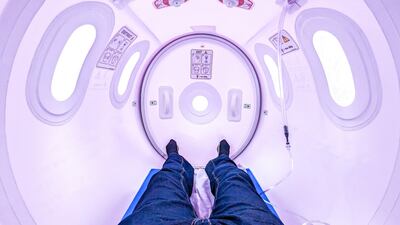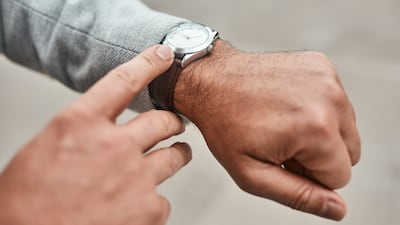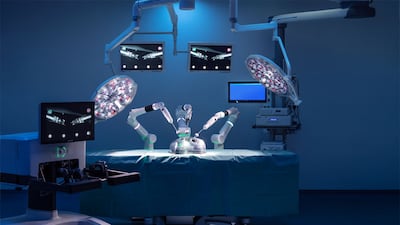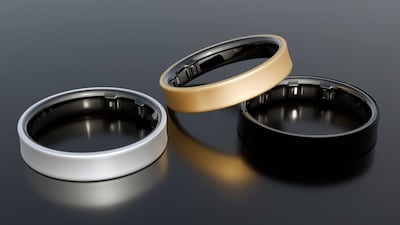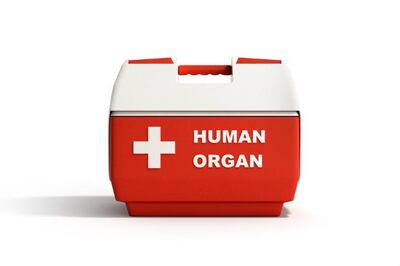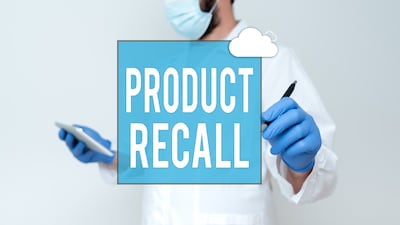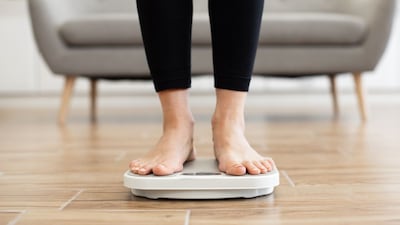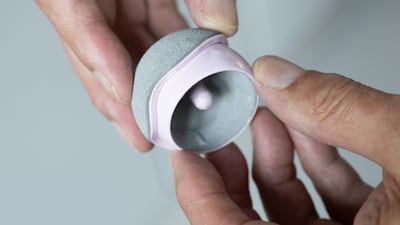
Medtech Insight
Urgent action is needed to address gaps in how risks from medical devices and diagnostics utilizing AI are identified, mitigated and managed. So says James Pink, renowned medtech regulatory expert in an interview with Medtech Insight.
The US FDA has published a list of recommendations for the safe use of hyperbaric oxygen therapy devices. While the therapy can be effective in treating several conditions, the agency says providers need to understand its potential risks.
Germany’s electronic patient record – ePA – is a flagship initiative of the ongoing national healthcare reform. The medtech industry welcomes rollout of the ePA while calling for further improvements.
An interactive look at recent executive-level company changes and promotions in the medical device and diagnostics industries.
EirMed CEO Richard Houlihan warns that EUDAMED (the European database on medical devices) publication delays may harm medical device manufacturers. Currently, only a fraction of the required uploads have occurred, creating potential compliance risks as the mandatory deadline approaches.
With $7.6m in funding, Qbeast plans to allocate about 55% of resources to engineering and R&D, 25% to go-to-market partnerships, sales, and marketing, 10% to customer success and onboarding and the remaining 10% to internal platform and operations to support scaling.
The value proposition of surgical robots is quickly changing. Gone is the focus on benefit to patients; instead cost, operative efficiency and surgeon longevity are the new focal points, making deciphering M&A value much more difficult.
Tempus expects its $81.25m acquisition of Paige AI to accelerate building the largest oncology foundation model. With its third deal this year, Tempus expands capabilities across genomics, pathology, and clinical trials.
The US International Trade Commission has banned smart rings from Ultrahuman and RingConn after Oura Health's patent infringement case. Ultrahuman countersued, claiming Oura infringes its intellectual property. Sales and marketing of the affected rings will cease on October 22.
The US FDA has provided an update on its breakthrough devices program, now 10 years running. Cardiac, orthopedic, and neurological devices have received the most designations, while only one has been awarded to an obstetrics/gynecology product.
Terumo will acquire OrganOx for about $1.5bn, adding the only FDA-cleared liver normothermic perfusion device to its portfolio. Analysts don’t expect the buyout to have a significant impact on competition, but the deal marks a strategic shift for Terumo into transplant medicine.
A Johns Hopkins University study found publicly traded companies are responsible for 90% of recalled AI-powered medical devices. The study attributes this link to lower clinical validation, especially among smaller companies, and advocates for increased clinical trials to enhance device safety.
Medicare’s device coverage process is “a system in crisis,” consultant Bruce Quinn warned at the NextGen Dx Summit. He criticized bloated NCDs, stalled advisory committees, and years-long delays, urging CMS to streamline LCDs and adopt a six-month “fast-track” model to speed innovation access.
Despite a surge in product recalls across five key industries in the first quarter of the year, medical device recalls were down, according to Sedgwick’s latest recall index. But the firm noted they’ve since ticked up.
Signos links users to Dexcom’s Stelo for glucose readings and historic trends. The app is available in iOS and Android from the firm’s website, where it’s priced at $139 for three-month plan and $129 for a two-month plan, or online app stores.
SetPoint Medical secured US FDA approval for its vagus nerve neuromodulation device to treat RA. Now, the start-up is tasked with convincing both rheumatologist and surgeons to adopt its technology over or alongside biologic drugs. CEO Murthy Simhambhatla talks exit strategy plans.
IQWiG, Germany’s health technology assessment body, is making contingency plans in case key US resources it relies on for information retrieval, when conducting benefit assessments of new medicines, become unavailable.
The vision company expects total annual revenues of $10.3bn-$10.4bn, marking a slower growth rate than earlier forecasts. However, management remains optimistic that overall trends, as well as recent purchases like STAAR and LumiThera, represent a significant market opportunity.
An interactive look at recent executive-level company changes and promotions in the medical device and diagnostics industries.
The ceramic device, designed to reduce complications, will be exclusively distributed by Zimmer Biomet and initially available in 30 hospitals, with broader European access expected by 2026.

